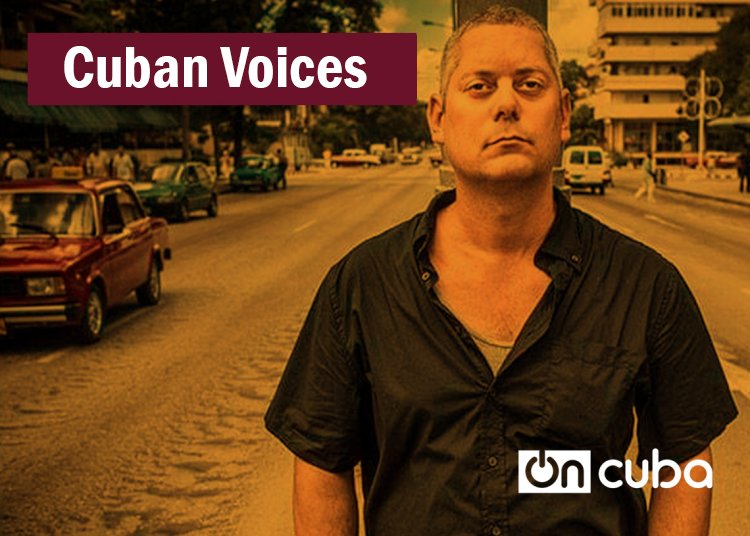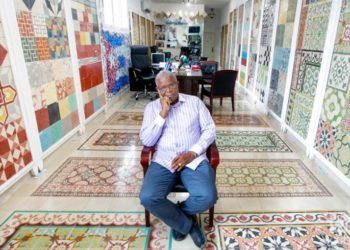Cuban Voices has talked, this time, with Norge Espinosa Mendoza (Santa Clara, 1971), a poet, critic, playwright, and also theatrical consultant. His poems and plays have been published and performed in Cuba and abroad. He is currently working on the edition of the memoirs of choreographer Ramiro Guerra
For some time, Cuban society has been transformed socially and economically and demands of various kinds are seen by various sectors. Is the Cuban State capable of absorbing and managing these demands?
This question implies responding like someone who shoots at a moving target, because the process in which we Cubans are involved lacks a series of sedimentations, guarantees, points of consolidation, which should already exist at this point, but which in everyday life, in our landscape that has been so rugged for decades, still do not operate properly or are just beginning to be reclaimed or re-functionalized.
The inflection imposed by the death of Fidel Castro, as leader and administrator of a concept of Revolution that was measured based on his presence and influence, has weakened the rhetoric, discourses, and procedures of a State that has not managed to renew those projections, and that at the same time knows that it must do it without too much delay.
The collective imagination also dialogues in different ways with this absence, with the idea of a Cuba in which, keeping alive the notion of Revolution, moves between the image of a museum and the urgent need for the country to open other channels of dialogue and benefit for its own good.
It is not that part of this is not being done, the problem lies in the effectiveness of how it is implemented when bureaucracy, institutional laziness, and clumsiness in establishing new protocols persist, and furthermore, the deficiencies are so obviously increasing.
For decades the State exercised an almost monolithic control over the productive forces, and today that reality changes, although we are witnesses and part of a tension that seems to struggle between granting these freedoms and making flexible all the mechanisms that must work for such a thing to be really effective.
Under undoubtedly strong pressure, Cuba would have to reformat from the ground up a series of methodologies and practices that would reconnect it to the way the world operates today, at a speed from which we are far away.
And that does not only have to do with the weight of some of these pressures but with an opening of minds and efforts that stop seeing the enemy everywhere and continue to use that pretext to stop the potential that this country possesses, starting with its human capital.
It is time to attend not only to a political idea of the Nation, but to many other qualities of the political among us, and that includes, of course, the voice of that individual who needs something more than the saturation imposed from the same and no longer always useful words.
What is your opinion on the intensification of sanctions against Cuba that took place during the Trump administration in the midst of this crisis aggravated by the pandemic and its consequences for the country?
It must be recognized that, regarding Cuba, Trump knew how to fulfill his promise at the Artime Theater in Miami. And that to prove it, he cyclically tightened the screws on the Cuba issue, with sanctions that only stopped after the end of his presidential term.
His advisers pointed out the weak points of the Cuban reality, and worked on these neuralgic points, closing access to visas and remittances, thus cutting off a food channel that, as demonstrated, had a much more sensitive influence than some believed and accepted about our reality.
This indicates that it was not difficult to organize a “cold” attack plan against such palliatives, which were already part of our reality and which easily collapsed.
During the Obama “idyll” with our country, as intense as it was brief, I always wondered how much of what was advanced in that period would remain standing if, as we suspected, a Republican president were to replace him.
They are not only measures that suffocate a large part of our population, under the excuse of cutting income from the State coffers, but they have increased a series of quarrels, misunderstandings and hatred between Cuba and the exile than in another order, no less important than the material, leaves a painful trail that speaks in its own fashion, of the traumas and discomforts that Cuba continues to be in the lives of many people, wherever they are.
It may take us a long time to recover from this damage, which has been a breeding ground for the new misinformation campaigns about our country.
The current socioeconomic dynamics generates changes in the class composition or of sectors of Cuban society and its dynamics of inequality. How do you see this problem and its possible solutions?
One thing is seeing it and another being able to describe it, when we lack a lot of internal information about the reality in which all that is stirring right now.
Classism, racism, sexism survive in a society that rises daily “to fight” very immediate issues and accelerated by a political notion that is also feverish.
I’m answering after the events of July 11, which undoubtedly left a very serious warning signal about these issues and others that a thorough investigation should clarify.
Despite the advancement and inclusion campaigns that the State has promoted, its own discourse becomes blurred when it refers to our society as a mass that, depending on how it supports or disagrees with certain measures, goes from being an affirmative group to the revolutionary cause, or is reduced to small groups of mercenaries, sellouts, traitors, etc. when the dissent grows.
For example, the State itself must have recognized that the opening of the stores in freely convertible currency has had an echo of unpopularity among us.
The current approach of state officials to peripheral areas, after the events of J11, shows how little connected to the reality of those who inhabit them has been for a long time, and that is not solved only by painting streets or repairing flowerbeds.
The differences, now increased by the currency exchange and the ineffectiveness of such a fact (undoubtedly expected and necessary, although advisable in a less overwhelming period like this), and the inflation that triggers the prices of everything in the streets, including medicines.
I think that an in-depth analysis of that concept that is right now “Cuban society” is necessary, distant from what we were in the 1980s and even in the 1990s, where the level of schooling has dropped (you just have to look at the networks to see that bad spelling abounds in a country that prided itself on the educational level of its citizens).
Add to this that the high generational contrast, between those who were educated and born during the Revolution, and those who today do not find those references in what they confront every day, also adds fuel to the fire. No, we are not the same country. And we should also concern ourselves and look at this more frankly. That is where the solutions should begin.
In an economic and social context like the current one, what is the space that social criticism has today? What space does citizen activism have, and should have, such as that aimed at defending the rights of the LGTBIQ+ community?
I confess that I ask myself this: what is that space? The recent meetings of the president and his team with some young university students and journalists give the measure of their real absence among us. Of the severe lack of training that not only they have, in several cases, to objectively name the problems that should be part of their work and their perspectives, after years of an idle exercise in our press, in whose most legitimizing media there is hardly room for it.
The idea of a falsely constructive criticism, the tepidity with which we refer to certain issues, the way in which sometimes rather than exercise criticism we seem to apologize because we are going to issue a criterion, are serious signs of that fragmented reality: that of the country at its ordinary level and that generated by the media, based on a will that appeals to doctrine and the hollow use of grand phrases.
What we lack is not criticism, but a critical awareness of our reality, understood as an attitude and aptitude, and for which no one should feel ashamed or fear when it comes to expressing it. That space has been replaced by the heated territory of the networks, where the will to say in “my space” what I want has been confused, with the keys that ethics, dialogue based on respect and confirmation of data should make more noticeable.
As for citizen activism, they are voices that constantly collide against those walls. After the events of J11, it was said that it was necessary to open spaces so that all the voices involved in them, whatever their criteria, were addressed.
At this point, with very few exceptions (Alma Mater, let’s say), the official Cuban “big press” has us waiting. Television, in particular, remains blind and deaf to such a claim, generally anchored in extreme positions.
We must not forget what happened on May 11, 2019, when the Cuban LGBTIQ+ community called a march in the Prado in order not to lose the visibility gained after years of silence.
That was one of the signs that I referred to after J11: a warning of how other sources of opinion and convocation were being organized in our society to which the State should be more attentive, in order to create a channel for dialogue and transparency that did not have to be created in a hurry when the outbreak was already inevitable.
We must demand the participation of these activisms in the decisions that affect us all, whether or not we are part of animal protection, ecological, racial or sexual groups…, especially so that no one feels helpless when legislation that affects their life, and about which their opinion was not taken into account, as a truly participatory context should be.
That we care not only about History but also Biographies. Right now the Family Code is about to come up for discussion, in which the recognition of homoparental nuclei is again discussed and in which we do not know if there were LGBTIQ+ people in the commission that drafted it, whose criteria were part of that procedure. It is time for this to be our voice, and not that of those who represent us from privileges that we lack, that speak for us.
What do you think are the most complex challenges for the Cuban nation, socialism and culture at this time?
I will be brief; I have already spoken a lot. Perhaps the greatest challenge has to do with trust, with the ability to create a channel of reliability that heals a degree of mutual respect between the representatives of the State and the society to which it owes itself, so that this produces an in-depth conversation between both parties, honest and not filtered from certain prerogatives and narrownesses, especially of thought.
A balanced debate, where the positive is emphasized, although everything that cannot be postponed is not blurred. It is a mutual and gradual process, but one that must have concrete results, from the table and the pocket of each one according to their work, to the spirituality and individual faith of what makes us recognize ourselves as part of Cuba, from any cardinal point of view. And in that, frankly, we still have a lot, a lot, to do.










